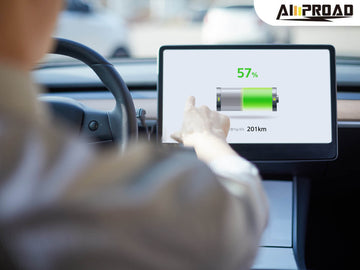
You’ve invested significantly in purchasing an EV, and naturally, you're concerned about the longevity of its most crucial component - the battery. Fortunately, modern EV batteries are engineered for durability. However, one day the battery will meet god. Then you will ask...
How long does an EV battery last?
As per the stats provided by Fuel Economy, “Batteries for EVs are designed for extended life, and a study by DOE's National Renewable Energy Laboratory suggest these batteries may last 12 to 15 years in moderate climates and 8 to 12 years in severe climates. It’s important to check the battery warranty offered by the EV manufacturers before decided to buy an EV.
Battery warranty of Tesla Cars (https://www.tesla.com/support/vehicle-warranty):

Battery warranty of Nissan Cars (https://www.nissanusa.com/parts-service/en/service-maintenance/batteries):

However, these batteries are expensive, and replacing them may be costly if they fail”. Thus, longer battery lifespan will save thousands of USD for you. Let’s break down the factors affect the the EV battery lifespan.
What factors affect the lifespan of EV battery?
Factors influencing the longevity of electric vehicle (EV) batteries encompass a broad spectrum of considerations crucial to their performance and durability. The durability of these batteries is contingent upon several variables that interact in complex ways.
Is battery chemistry the key factor influencing electric car battery longevity?
Battery chemistry plays a pivotal role in determining lifespan. Lithium-ion batteries, the most common in EVs, degrade over time due to chemical reactions within the cells, impacting their overall capacity and efficiency. Factors such as temperature fluctuations and EV charging patterns can exacerbate this degradation. High temperatures accelerate chemical reactions, while rapid charging or discharging rates can strain the battery, leading to premature aging.
How usage patterns influence EV battery life?
Usage patterns significantly influence battery life. Frequent deep discharges or extended periods of high-current discharge (such as rapid acceleration) can stress the battery, causing it to lose capacity more quickly. Conversely, gentle use and regular for example, using the Level 2 EV charger to charge your car regularly, moderate charging tend to prolong battery life by reducing stress on the cells.
Are maintenance and care practices crucial to keep longer EV battery life?
The answer should be yes. The proper cooling and thermal management systems can mitigate the adverse effects of heat buildup during operation, thereby extending battery life. Routine battery management system (BMS) calibration and software updates ensure optimal performance and accurate state-of-charge readings, which in turn help preserve battery health over time.
Why the quality of manufacturing and battery design play essential role?
The quality of manufacturing and battery design also play essential roles because it’s the premise of the battery longevity. Well-engineered batteries with robust construction and effective heat dissipation mechanisms are less prone to degradation compared to cheaper or poorly designed alternatives.
Environmental factors
Furthermore, environmental factors such as ambient temperature, humidity, and air quality can impact battery longevity. Extreme weather conditions, exposure to corrosive elements, or contaminants can degrade battery performance and lifespan if not adequately managed.
Now we can see, the lifespan of EV batteries is intricately linked to a multitude of factors ranging from chemical composition and usage habits to environmental conditions and technological innovation. These factors are essential for maximizing battery lifespan and optimizing the performance of electric vehicles in the long run. So, are there any ways to prolong the longevity of electric car battery?
How to prolong the EV battery longevity?
Prolonging the lifespan of electric vehicle (EV) batteries requires a combination of mindful practices, technological advancements, and strategic management. Implementing these strategies not only enhances battery durability but also optimizes overall vehicle performance and sustainability.
Optimal Charging Practices
Adopting smart charging habits is crucial. Avoid frequent deep discharges and opt for moderate, regular charging sessions whenever possible. This approach reduces strain on the battery cells, mitigating premature aging. Many EV charger manufacturers offer versatile home EV charger features with smart functions. Utilizing scheduled charging features during off-peak electricity hours can further minimize stress on the grid and optimize battery health.
Temperature Management
Maintaining optimal temperature conditions is paramount. Extreme heat or cold can accelerate battery degradation. Utilize garage parking to shield the vehicle from temperature extremes when possible. Electric vehicles equipped with thermal management systems automatically regulate battery temperature, enhancing longevity by preventing overheating during operation.
Driving Habits
Adopting smooth driving techniques can significantly impact battery life. Avoid sudden accelerations and decelerations, as these maneuvers consume more battery power and generate heat. Utilize regenerative braking systems effectively to recapture energy during deceleration, extending driving range and preserving battery capacity over time.
Software Updates and Maintenance
Regular software updates ensure the battery management system (BMS) operates efficiently, providing accurate state-of-charge readings and optimal performance. Scheduled maintenance checks by certified technicians are essential to identify and rectify potential issues early, maintaining peak battery health and vehicle reliability.
Battery Health Monitoring
Utilize built-in diagnostics and mobile apps to monitor battery health and performance metrics regularly. These tools provide insights into charging patterns, energy consumption, and battery condition, enabling proactive adjustments to maximize longevity.
Environmental Considerations
Consider environmental factors when storing or operating an electric vehicle. Minimize exposure to extreme temperatures, moisture, and pollutants that can compromise battery integrity. Park in shaded areas or utilize vehicle covers to shield against environmental elements when feasible.
Advancements in Technology
Stay informed about advancements in battery technology and charging infrastructure. New developments, such as solid-state batteries or high-power charging networks, promise improved efficiency, faster charging times, and extended battery life in future EV models.
By implementing these strategies empowers EV owners to prolong battery longevity effectively while contributing to sustainable transportation practices. By prioritizing optimal charging routines, conscientious driving behaviors, and proactive maintenance, electric vehicle enthusiasts can enjoy extended battery life and enhanced driving experiences for years to come.



